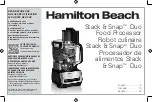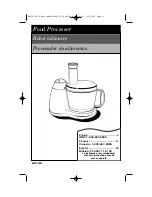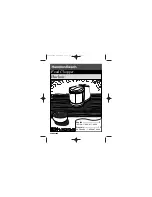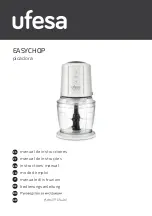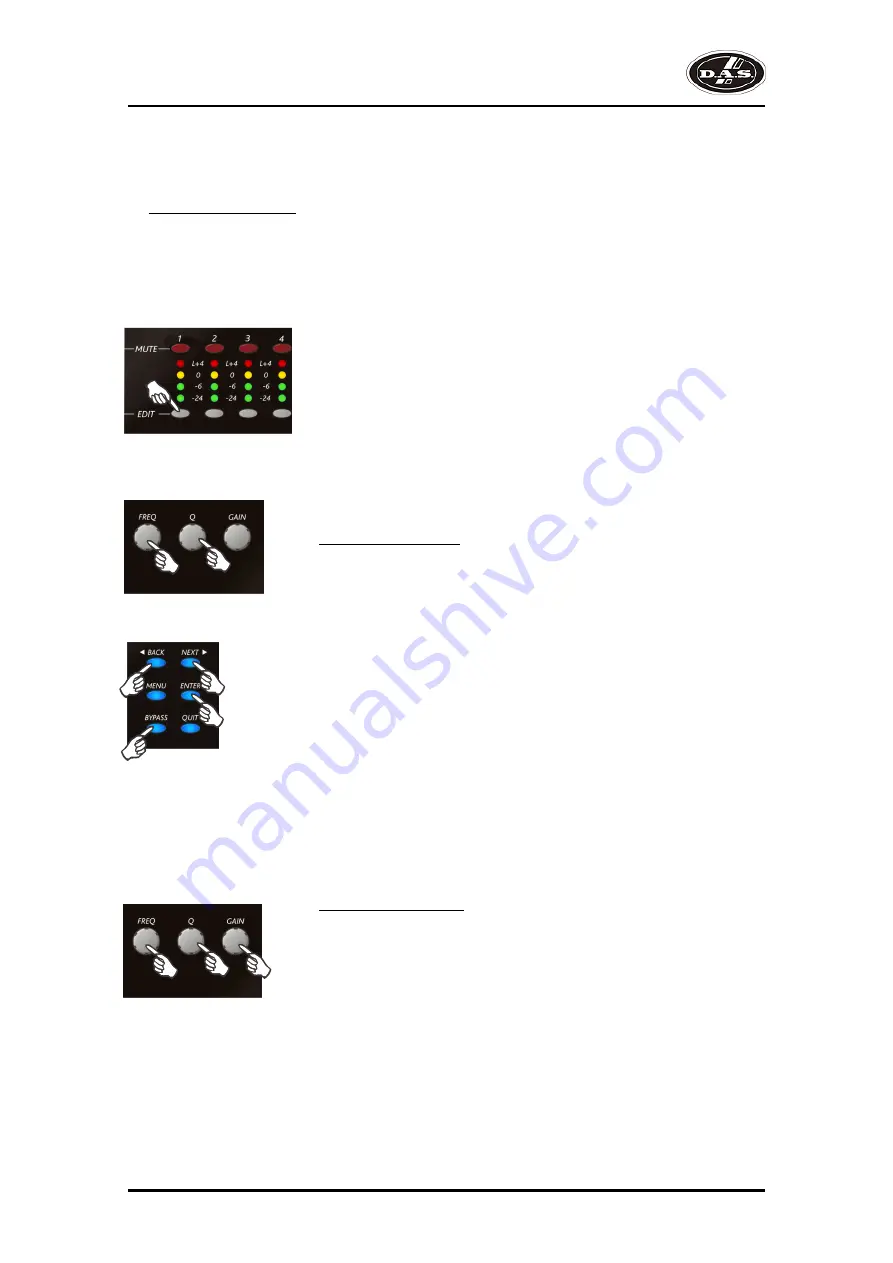
13
Output high pass filter
The high pass crossover filter on each output has a frequency range of <10Hz up to 32kHz in 1/36th
Octave steps. If you try to set the high pass filter to a higher frequency than the low pass (which would be
pointless and result in no output), the message
OP1 Output 1 HPF /~~
<10Hz Linkw-Riley 48dB
OP1 Output 1 LPF ~~\
>32kHz Linkw-Riley 48dB
Output low pass filter
The low pass crossover filter on each output has a frequency range of
35.1Hz up to >32kHz in 1/36th Octave steps. If you try to set the low pass filter
to a lower frequency than the high pass (which would be pointless and result in
no output), the message
The FREQ allows to change the frequency, and using Q the slope.
The FREQ allows to change the frequency, and using Q the slope.
‘High/Low Freq. Overlap!’
will be displayed. Note that to access the 48dB/Octave filters, parametric
bands 6 & 7 need to be bypassed, or set to 0dB. If they are not, the message
‘Bypass PEQ’s 6 & 7 To Access 48dB Slopes’
will be displayed.
‘High/Low Freq. Overlap!’
will be displayed. Note that to access the 48dB/Octave filters, parametric
bands 8 & 9 need to be bypassed, or set to 0dB. If they are not, the message
‘Bypass PEQ’s 8 & 9 To Access 48dB Slopes’
will be displayed.
Output parametric EQ
There are nine bands of parametric equalisation available on every output.
The behaviour of each individual band can be changed to a variety of different
filter shapes, including high and low shelves. Changing the filter type is achieved
by pressing BYPASS to bypass the filter and then pressing ENTER during
editing any particular band. For more details about the various types of filter
available, please see page 27.
OP1 Output 1 PEQ:1<>
1kHz Q = 3 0.0dB
DSP-2040
User’s Manual
Summary of Contents for DSP-2040
Page 6: ...DSP 2040 User s Manual...































